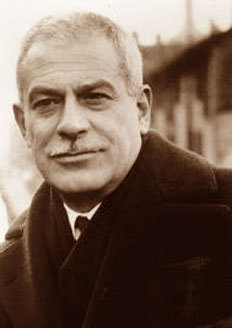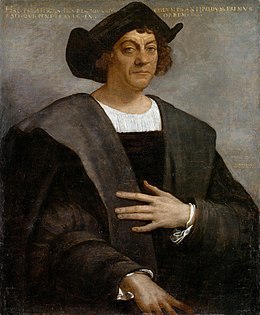Elio Vittorini, an Italian writer, was born in Syracuse on July 23, 1908. Son of a railwayman and first of four brothers, he spent his childhood in various places in Sicily following his father's movements; then, in 1924, he suddenly fled from the island to go to work in Friuli Venezia Giulia as a construction worker.
In the wake of these beliefs and cultural influences, in the years 1938-1940 he wrote his most important novel "Conversation in Sicily", at the center of which he posed the theme of the "world offended" by dictatorships and that of the individual responsibilities of the man of culture.
During the war he carried out clandestine activity for the communist party. In the summer of 1943 Vittorini had been arrested, but remained in prison just until September. Once free, he took care of the underground press, took part in some of the Resistance actions and participated in the foundation of the Youth Front, working closely with Eugenio Curiel. He risked being captured by the fascist police; later he retired for a while in the mountains. After the war he returned to Milan with Ginetta, his company of recent years.
In 1963 he became seriously ill and underwent a first surgical operation. Despite the illness, its publishing activity remains very dense, having meanwhile assumed the direction of the Mondadori series "New foreign writers", and that of Einaudi "Nuovo Politecnico".
On 12 February 1966 he died in his Milanese house in Via Gorizia at the age of 57. The critical volume "The Two Tensions" (1967) comes out posthumously, and the aforementioned unfinished novel written in the fifties, "Le città del mondo".
"Men need to be happy. Everything has sense only because men are happy."
Why, if they weren't terrible, did they kill? Why, if they were simple, if they were peaceful, did they fight? Why, without nobody who force them, had they entered that duel to the death and supported him?"

Cristoforo Colombo
 Cristoforo Colombo was a famous Italian navigator. He is well-known because he discovered the American continent. He, because he knew that the earth is round, thought that if someone left from Portugal, he would have arrived in China. So he asked Queen Isabelle of Castile three boats (Niña, Pinta and Santa Maria). He left to arrive in China to sell his goods, but he didn't know that there was another continent, America. Unfortunately he has never understood that.
Cristoforo Colombo was a famous Italian navigator. He is well-known because he discovered the American continent. He, because he knew that the earth is round, thought that if someone left from Portugal, he would have arrived in China. So he asked Queen Isabelle of Castile three boats (Niña, Pinta and Santa Maria). He left to arrive in China to sell his goods, but he didn't know that there was another continent, America. Unfortunately he has never understood that.
Quotes:
"You can never cross the ocean unless you have the courage to lose sight of the shore "(Non si può mai attraversare l'oceano se non si ha il coraggio di perdere di vista la riva).
"And the sea will give every man new hopes, as sleep brings dreams"(E il mare concederà a ogni uomo nuove speranze, come il sonno porta i sogni).
"Words are not enough to say and hand to write all the wonders of the Sea"(La lingua non è sufficiente a dire e la mano a scrivere tutte le meraviglie del Mare)
SAMANTHA CRISTOFORETTI
Samantha Cristoforetti born in Milan in 1977, is originally from Malé (Trento), where she grew up.
In May 2009 she was selected as an astronaut by the European Space Agency (ESA) as the first Italian woman and third European overall.
Her first mission begins on November 23rd, 2014. On June 11th 2015, after 199 days and a few hours on the International Space Station, he returned to Earth in Kazakhstan.
She speaks Italian (mother tongue), German, English, French and Russian.
She said: "The Space Station is a truly luminous example of how international differences are completely secondary when you have a big goal, a common passion."
An asteroid named 15006 Samcristoforetti was also dedicated to Cristoforetti.
Rita Levi Montalcini
Con Giuseppe Levi si pose come obiettivo la comprensione del ruolo dei fattori genetici e di quelli ambientali nella differenziazione dei centri nervosi.
L'apoptosi
Proprio durante le ricerche nel suo laboratorio clandestino e domestico, la Montalcini scoprì il meccanismo di morte di intere popolazioni nervose nelle fasi iniziali del loro sviluppo, fenomeno che tre decenni più tardi fu ufficialmente riconosciuto e definito apoptosi. Si tratta di una forma di morte cellulare programmata, portata avanti in modo ordinato e regolato, che richiede consumo di energia (ATP) e generalmente porta a un vantaggio durante il ciclo vitale.
Un esempio di apoptosi si ha nell’embrione, durante il suo sviluppo, quando mani e piedi sono palmati ed è necessario che le cellule che costituiscono le membrane interdigitali muoiano. Montalcini, per l'esperimento, tagliò le zampe a dei pulcini per vedere il loro comportamento
L’NGF (Acronimo di Nerve growth Factor o Fattore di crescita della cellula nervosa)
Durante la sperimentazione di un trapianto di tumore di topo sul sistema nervoso dell’embrione di un pulcino, la Montalcini osservò l’NGF, una proteina che riveste un ruolo essenziale nella crescita e differenziazione delle cellule nervose sensoriali e simpatiche.
È una proteina dimerica, formata da due subunità uguali unite tra loro ponti di solfuro e prodotta in piccole quantità in vari tipi cellulari nei Vertebrati.
La scoperta dell’NGF è stata fondamentale per la comprensione delle cellule e degli organi e ha svolto un ruolo significativo nella comprensione del cancro e di malattie come l’Alzheimer e il Parkinson.
L’individuazione del fattore di crescita nervosa della cellula andava contro l’ipotesi dominante all’epoca nel mondo scientifico che il sistema nervoso fosse statico e rigidamente programmato dai geni.
Negli ultimi 15 anni nuovi studi hanno scoperto che NGF svolge un ruolo chiave nel prevenire l’insorgenza dell’Alzheimer. Impedisce, infatti, la produzione della proteina beta-amiloide, la principale responsabile della malattia, bloccando sul nascere il processo degenerativo. Queste ricerche hanno aperto la strada a possibili applicazioni terapeutiche, attualmente in fase di studio.
With Giuseppe Levi the objective was to understand the role of genetic and environmental factors in the differentiation of nerve centers.
Apoptosis
It was during his research in his clandestine and domestic laboratory that Montalcini discovered the mechanism of death of entire nervous populations in the early stages of their development, a phenomenon which three decades later was officially recognized and termed apoptosis. This is a form of programmed cell death, carried out in an orderly and regulated manner, which requires energy consumption (ATP) and generally leads to an advantage during the life cycle.
An example of apoptosis occurs in the embryo, during its development, when hands and feet are webbed and it is necessary that the cells that make up the interdigital membranes die. Montalcini, for the experiment, cut the legs into chicks to see their behavior.
NGF (acronym for Nerve growth Factor or Nerve cell growth factor)
During the trial of a mouse tumor transplant on the nervous system of a chick embryo, Montalcini observed NGF, a protein that plays an essential role in the growth and differentiation of sensory and sympathetic nerve cells.
It is a dimeric protein, formed by two equal subunits joined together with sulfide bridges and produced in small quantities in various cell types in Vertebrates.
The discovery of NGF has been central to understanding cells and organs and has played a significant role in understanding cancer and diseases such as Alzheimer's and Parkinson's.
The identification of the cell's nerve growth factor went against the dominant hypothesis at the time in the scientific world that the nervous system was static and rigidly programmed by the genes.
Over the past 15 years, new studies have found that NGF plays a key role in preventing the onset of Alzheimer's disease. It prevents the production of beta-amyloid protein, the main cause of the disease, blocking the degenerative process in the bud. This research has paved the way for possible therapeutic applications, currently being studied.
I lost my sight a little, very much my hearing. At conferences I don't see the projections and I don't feel well. But I think more now than when I was 20 years old. The body does what it wants. I am not the body: I am the mind.